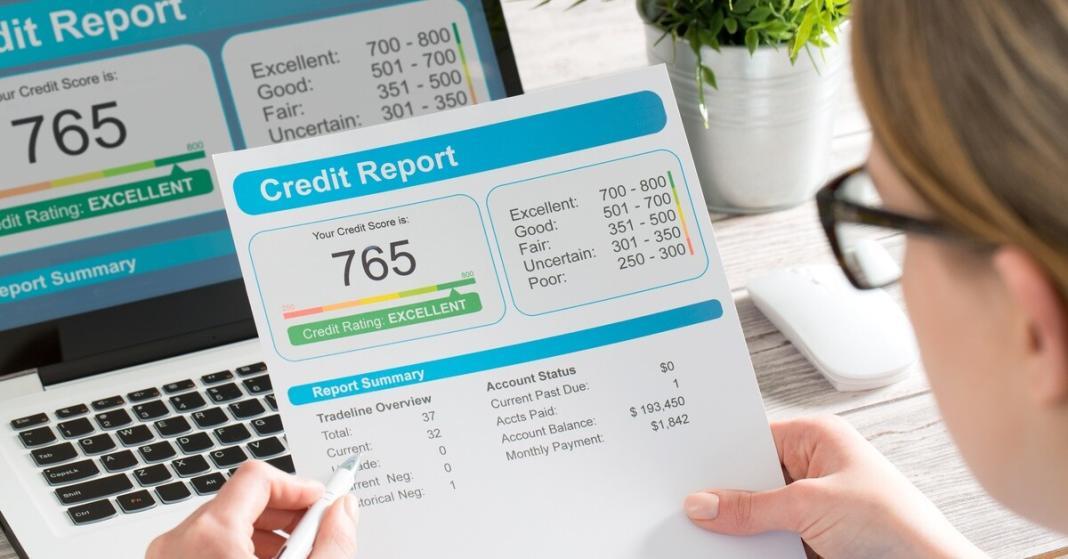Your credit score is a financial metric that holds significant power. Whether you’re applying for a credit card, a car loan, or securing a home or land loan, this three-digit number influences interest rates and approval outcomes.
Keeping your credit score healthy doesn’t always require drastic measures. Often, small, consistent actions lead to noticeable improvements. We’re exploring a handful of small things that make a big difference with credit score, helping steer your score in the right direction to achieve your financial goals.
Pay Bills on Time, Every Time
Your payment history is one of the most influential factors in determining your credit score. Lenders assess your ability to consistently make payments on time because it reflects your reliability in managing debt. Missing even one payment could lower your score and stay on credit reports for years.
The good news? A simple habit of timely payments can boost your credit profile considerably. Setting up automated payments will ensure you never forget a due date. Alternatively, calendar reminders a few days before a payment deadline can work just as effectively. Over time, a flawless payment history signals to lenders that you’re a low-risk borrower, which is exactly what credit scoring models reward.
For those juggling multiple bills, prioritizing debts, such as credit cards or installment loans, can ensure your timely repayment decisions are contributing positively to your overall score.
Keep Credit Usage Low
Credit usage plays a critical role in determining your creditworthiness. It refers to the balance-to-credit limit ratio on your revolving credit accounts, such as credit cards. For example, if your credit card has a limit of $5,000 and you’re carrying a balance of $3,000, you have a 60 percent usage rate, which is considered quite high.
Ideally, financial experts recommend keeping your credit usage under 30 percent. The lower, the better. This is because a high usage ratio signals to lenders that you might be over-reliant on credit, which increases your risk to them.
Also read, Do you know your credit score?
Optimize Usage Ratios for your Benefit
Pay down balances as frequently as possible to keep your ratio low and make multiple monthly payments if needed. For those carrying ongoing balances, consider requesting a credit limit increase from your card issuer. If approved, this will lower your usage ratio instantly without additional spending. Just resist the temptation to max out the new limit quickly.
Check Your Credit Report Regularly
Errors on credit reports are more common than many people realize. According to some reports, one in five consumers identified inaccuracies on their credit reports that could make them appear riskier than they actually are.
These errors could range from incorrectly reported late payments to accounts that don’t belong to you. Catching these mistakes can make an immediate difference in your credit score. Regular monitoring allows you to spot errors early and dispute them with the relevant credit bureau.
You’re entitled to a free credit report annually from each of the major bureaus—Equifax, Experian, and TransUnion. Mark your calendar to review one report every four months to stay on top of any discrepancies. Monitoring apps like Credit Karma or paid tracking services will help you remain in the know.
Mistakes hurt your score and might also jeopardize other financial goals like your land loan eligibility. That’s why proactive monitoring protects your credit and your future opportunities.
Pro Tip
It’s important to remember that you’re entitled to those free annual reports. If you’re bombarded with payment apps and subscriptions, you can skip downloading the credit monitoring apps that may request a small monthly fee. Take advantage of the annual reports and spread out when you review them.
Avoid Opening Too Many New Accounts
Tempting as credit card offers and promotions might appear, applying for multiple lines of credit within a short time frame can, unfortunately, hurt your score. Each application often results in a hard inquiry, and these can lower your score slightly. While the impact of a single inquiry isn’t significant, several inquiries add up and make lenders worried about your financial stability.
The key is moderation. Open new credit accounts only when absolutely necessary. For instance, instead of applying for every card offering a sign-up bonus, focus on finding one with benefits that align with your spending habits.
Additionally, if you plan to apply for major financing, like a mortgage or car loan, avoid opening new accounts in the months leading up to it. This will prevent avoidable inquiry-related dips in your score so that you can approach your loan application from a stronger position.
Be Mindful of Credit Mix
Another lesser-known factor influencing your credit score is your credit mix. This refers to the diversity of credit accounts you hold, including revolving credit and installment loans—think credit cards and auto loans. A balanced credit mix demonstrates that you’re capable of managing different types of debt responsibly.
You don’t need to go out of your way to add new loans just to diversify your credit profile—that would be counterproductive. Instead, aim to maintain a good payment record across the types of credit you currently have. Over time, this natural variety will be enough to reflect well on your credit report.
Start Your Credit History on the Right Path
For people with limited credit histories, taking out a small secured loan or becoming an authorized user on someone else’s credit card can establish or strengthen a diversified credit portfolio.
The Bigger Picture
Improving your credit score doesn’t require monumental changes. Often, it’s the small actions, done consistently over time, that yield the biggest results. From prioritizing on-time payments to scrutinizing your credit report regularly, these strategies will enhance your score and set you up for greater financial success.
Since your credit score directly impacts things like interest rates, credit card approvals, and even your loan eligibility, maintaining it effectively is an essential step in achieving short-term financial stability and long-term goals.
Knowing where to start is half the battle. Take your first step today by reviewing your credit report, paying down high balances, or automating payments. A few small steps today could make a big difference tomorrow to your credit score.
You may also like to read,







